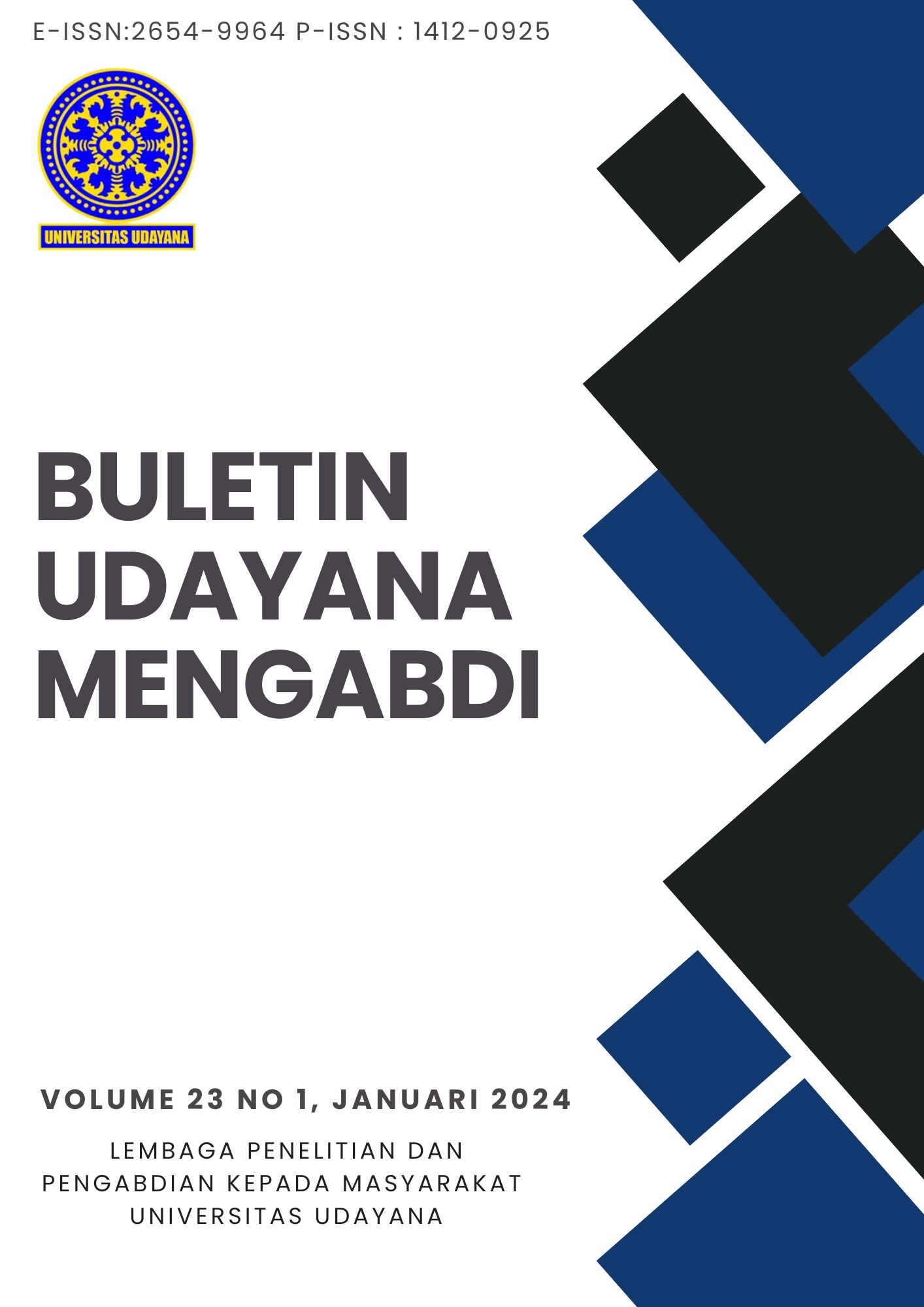PELATIHAN PENCEGAHAN PENYAKIT KULIT AKIBAT JAMUR PADA SISWA SMP NEGERI 2 MANADO
Abstract
Skin disease is one of the health problems in Indonesia, some of them are caused by fungi. Hormonal changes or increased sebum secretion in the body and high activity during adolescence, can be a risk factor for fungal diseases of the skin. The purpose of this dedication is to train students on the prevention of fungal skin diseases and to identify fungi that cause skin diseases. The methods used in the training are lectures, demonstration, practice and discussion while the method used for the eximination of fungi using the direct examination method. Evaluation of training programme using pre-test and post-test techniques. The average pre-test score was 47.42 and the post-test average was 79.03, indicating an increase in knowledge after being given trainin. Practise result show that some of students skin have characteristics such as white patches, some are brown, itchy, found on the neck, face and back. Another feature is a ring-shaped rash, with slightly raised edges and scaly skin. The results of the examination using skin scraping samples from 26 respondents with 10% KOH solution, obtained positive results from 12 (46.15%) samples and negative results from 14 (53.85%) samples.
Keywords: Skin disease, Fungal, Student
Downloads
References
Berghrant I. M., Faergemann J (1988) Variations of Pityrosporum orbiculare in middle – aged and elderly individuals. Acta. Derm.Venereol. 68(6), p 537–540.
Brooks GF, Butel JS, dan Morse SA (2007). Mikrobiologi Kedokteran Edisi ke-23. Penerbit EGC; Jakarta
Chandra K, Karna N. L. P., Wiraguna A. A. G. P (2017). Prevalensi dan Karakteristik Pityriasis versicolor di RSUP Sanglah Denpasar Periode Januari 2017-Desember 2017. Jurnal Medika Udayana, Volume 8: Nomor 12.
Depkes RI (2009). Profil Kesehatan Indonesia 2008. Departemen Kesehatan Republik Indonesia.
Gaitanis G, Magiatis P, Hantschke M, Bassukas ID, Velegrakid A. (2012). The Malassezia genus in skin and systemic diseases. Clinical Microbiology Reviews. 25(1), p 106–41.
Kemenkes RI (2011). Profil Kesehatan Indonesia 2010. Kementerian Kesehatan Republik Indonesia.
Morais P. M, Cunha Mda G, Frota M. Z. (2010). Clinical aspects of patients with pityriasis versicolor seen at a referral center for tropical dermatology in Manaus, Amazonas, Brazil. Anais Brasileiros de Dermatologia. 85(6), p 797‐803
Nisa U. M. (2017). Metode Praktikum untuk Meningkatkan Pemahaman dan Hasil Belajar Siswa kelas V MI YPPI 1945 Babat pada Materi Zat Tunggal dan Campuran. Biology Education Conference. Vol. 14, No. 1, Hal. 62-68.
Robin G. B. & Burns T (2005). Dermatologi Edisi Kedelapan. Penerbit Erlangga.

This work is licensed under a Creative Commons Attribution-ShareAlike 4.0 International License.

This work is licensed under a Creative Commons Attribution-ShareAlike 4.0 International License.




.png)


1.png) GARUDA - GARBA RUJUKAN DIGITAL
GARUDA - GARBA RUJUKAN DIGITAL



